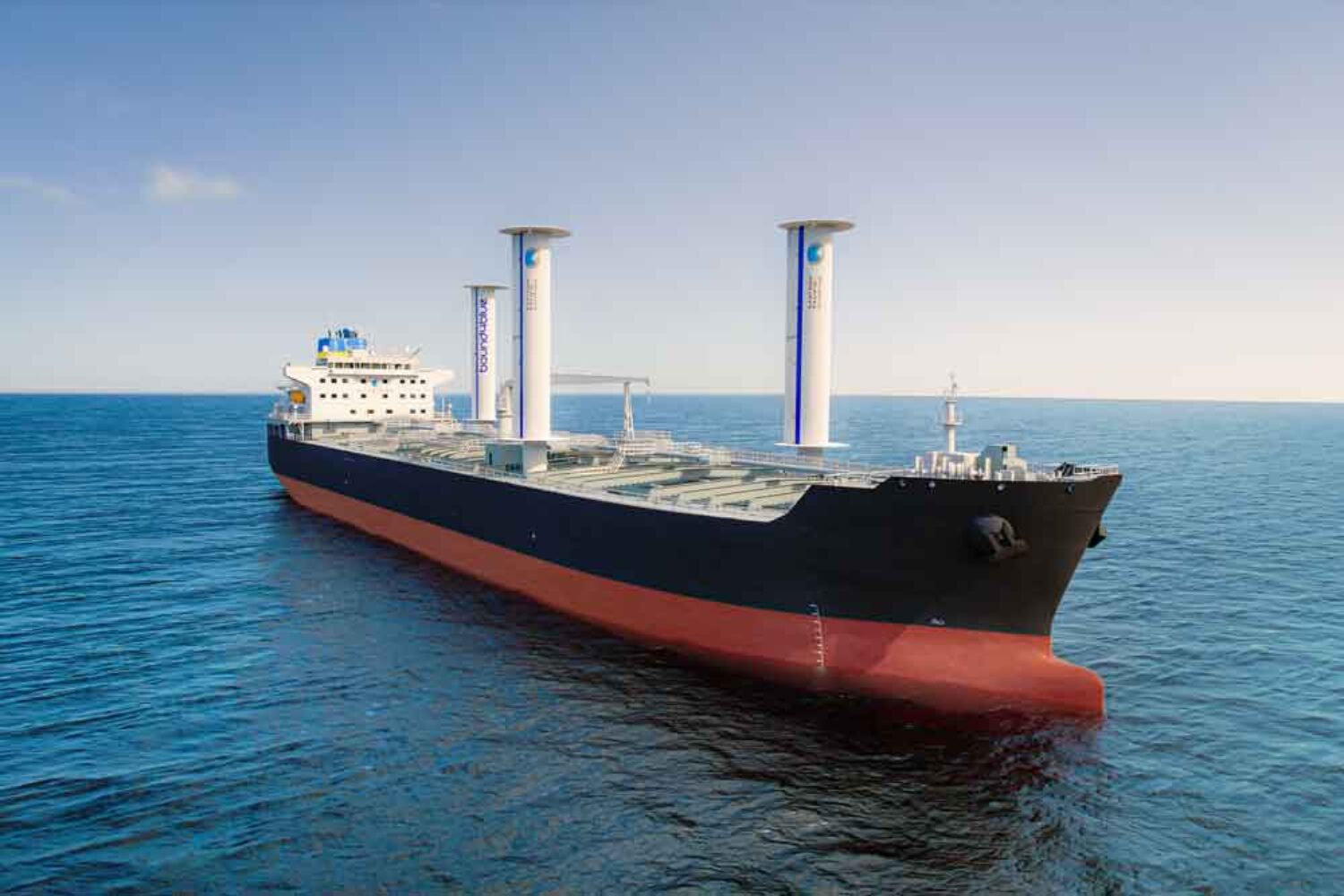The shipping company, Eastern Pacific Shipping (EPS) from Singapore, has ordered three more sails from Bound4Blue.
The 22-metre-high “eSails” are to be installed on a new tanker built by New Times Shipbuilding in China at the end of 2025. This is the second collaboration between the two companies in the field of wind-assisted propulsion systems (WAPS).

EPS already equipped the “Pacific Sentinel” (50,000 dwt) with three eSails in February. Bound4Blue recently received further orders for its suction sails, which have been DNV-approved since the summer of this year. This year, the order book grew from four projects to a total of fourteen.
The system draws wind over an aerodynamic surface to increase the propulsion efficiency of a ship. This helps to reduce fuel consumption, operating costs and emissions. At the same time, the eSails are designed to help ship owners and charterers meet legal requirements.
“We are delighted to once again be working with EPS, one of the leading companies in the transition of the shipping industry to environmentally friendly technologies,” said Daniel Mann, recently appointed CCO at Bound4Blue. “The decision to use our eSAIL technology not only reflects their commitment to greener shipping, but also paves the way for a wider application of wind-assisted propulsion systems in the industry. These systems offer a proven, mechanically simple solution to reduce emissions, lower costs and meet regulatory requirements such as FuelEU Maritime, CII and EU-ETS. We are delighted to support EPS in achieving its ambitious sustainability goals.”
EPS sets course for decarbonisation
Mirtcho Spassov, Decarbonisation Manager at EPS, added: “We are delighted to be working with Bound4Blue and New Times Shipbuilding to install our first wind-assisted propulsion system on a newbuilding. This project is an important milestone in our decarbonisation journey and lays the foundation for wider adoption of WAPS technology across our fleet.”
EPS manages an extensive fleet of over 300 vessels with a total tonnage of 31 million GT.













